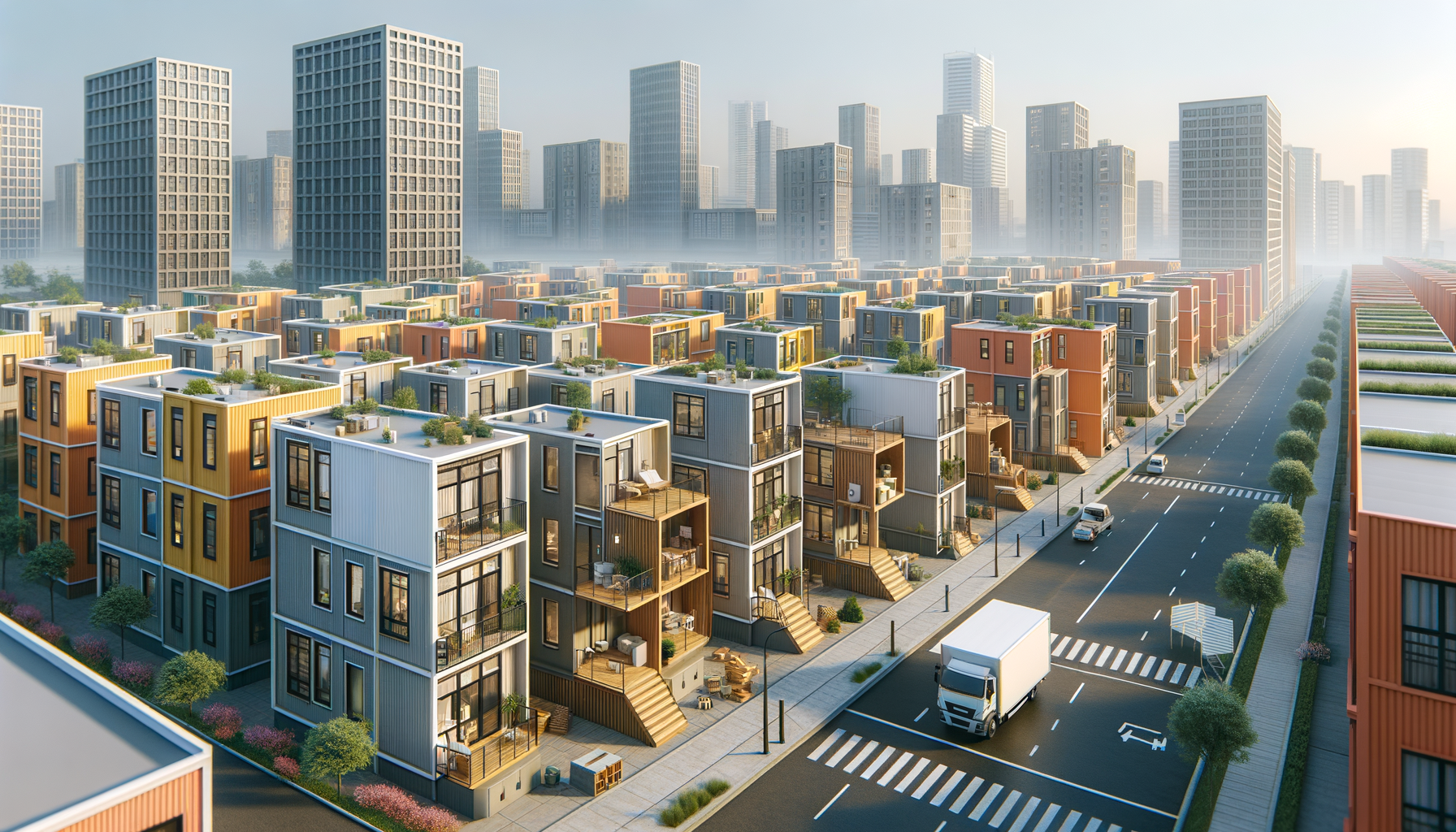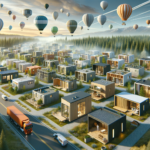Understanding Prefab Modular Buildings
Prefab modular buildings are revolutionizing the construction industry with their innovative approach to building design and assembly. Unlike traditional construction methods, prefab buildings are manufactured off-site in sections, or modules, and then transported to the final location for assembly. This process offers numerous advantages, including reduced construction time, cost savings, and minimized environmental impact.
These buildings are constructed in a controlled factory environment, which ensures high-quality standards and reduces the likelihood of weather-related delays. The precision and efficiency of factory production also allow for better resource management, resulting in less waste and more sustainable building practices. Prefab modular buildings can range from small residential homes to large commercial structures, showcasing their versatility and adaptability.
Moreover, the modular nature of these buildings allows for flexibility in design, enabling customization to meet specific needs and preferences. This adaptability is particularly beneficial in urban areas where space is limited, as modular buildings can be easily expanded or reconfigured. As urbanization continues to rise, the demand for efficient and sustainable building solutions like prefab modular buildings is expected to grow.
The Role of Prefab Building Companies
Prefab building companies play a crucial role in the development and proliferation of modular construction. These companies specialize in designing, manufacturing, and assembling prefab buildings, offering a comprehensive range of services to clients. They are responsible for ensuring that the modules meet all regulatory standards and quality benchmarks, which is essential for the safety and durability of the structures.
These companies often employ a team of architects, engineers, and construction experts who collaborate to create innovative and efficient building designs. By leveraging advanced technology and modern manufacturing techniques, prefab companies can produce high-quality structures at a fraction of the time and cost of traditional construction methods.
Additionally, prefab building companies offer a wide variety of design options, allowing clients to choose from standard models or customize their buildings to suit specific needs. This flexibility is particularly appealing to businesses and homeowners looking for unique and personalized spaces. As the industry continues to evolve, prefab building companies are at the forefront of driving innovation and sustainability in construction.
Advantages of Prefab Buildings
Prefab buildings offer numerous advantages that make them an attractive option for both residential and commercial projects. One of the most significant benefits is the speed of construction. Since the modules are manufactured off-site, the on-site assembly process is much quicker compared to traditional building methods. This accelerated timeline can lead to significant cost savings, as labor and overhead expenses are reduced.
Another advantage is the quality control inherent in the factory production process. Prefab buildings are constructed in a controlled environment, which minimizes the risk of defects and ensures consistent quality. This level of precision is difficult to achieve with on-site construction, where variables such as weather and labor conditions can impact the final product.
Prefab buildings are also known for their sustainability. The controlled manufacturing process allows for efficient use of materials, reducing waste and promoting eco-friendly practices. Additionally, many prefab buildings are designed with energy efficiency in mind, incorporating features such as high-performance insulation and energy-efficient windows.
These advantages make prefab buildings a compelling choice for those seeking efficient, cost-effective, and sustainable building solutions.
Exploring Modular Homes
Modular homes are a popular subset of prefab buildings, offering a modern and efficient alternative to traditional housing. These homes are constructed in sections, or modules, in a factory setting and then transported to the building site for assembly. This method offers several benefits, including reduced construction time, lower costs, and improved quality control.
One of the standout features of modular homes is their design flexibility. Homeowners can choose from a variety of floor plans and styles, ranging from contemporary to traditional. This customization allows for the creation of unique living spaces that reflect individual tastes and preferences. Additionally, modular homes can be easily expanded or modified, making them a versatile option for growing families or changing needs.
Modular homes are also known for their durability and energy efficiency. The controlled factory environment ensures high-quality construction standards, resulting in homes that are built to last. Many modular homes incorporate sustainable building practices, such as energy-efficient appliances and eco-friendly materials, contributing to a reduced environmental footprint.
As the demand for affordable and sustainable housing solutions continues to rise, modular homes are increasingly being recognized as a viable and attractive option for modern living.
Leading Prefab Companies and Their Impact
Prefab companies are at the forefront of transforming the construction industry with their innovative approaches and cutting-edge technologies. These companies are responsible for designing and manufacturing a wide range of prefab buildings, from residential homes to commercial complexes. Their impact on the industry is significant, as they continue to push the boundaries of what is possible in modular construction.
One of the key contributions of prefab companies is their ability to deliver high-quality buildings in a fraction of the time it takes for traditional construction. By utilizing advanced manufacturing techniques and materials, these companies can produce durable and efficient structures that meet the needs of modern consumers. This efficiency not only reduces costs but also minimizes the environmental impact of construction.
Prefab companies also play a vital role in promoting sustainability within the industry. Many of these companies are committed to eco-friendly practices, such as using recycled materials and implementing energy-efficient designs. Their focus on sustainability aligns with the growing demand for green building solutions and contributes to a more sustainable future.
As the prefab industry continues to evolve, these companies will remain pivotal in shaping the future of construction, offering innovative and sustainable solutions that meet the needs of a changing world.








